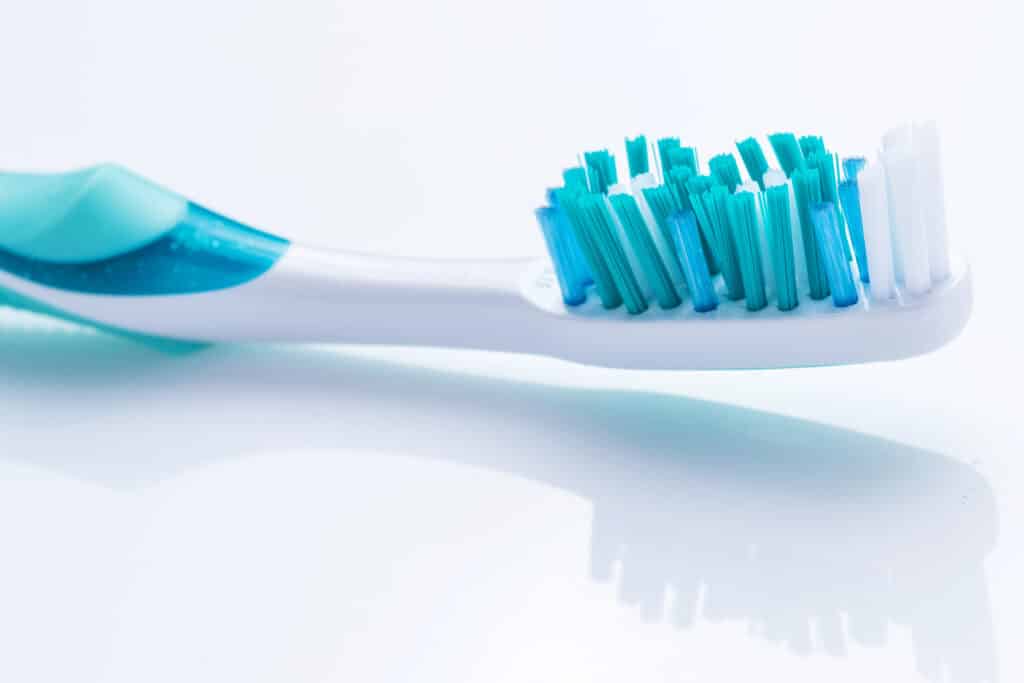Most people have a general idea of what cavities are, but there are many common misconceptions about them floating around. Here at Sloan Creek Dental, we want to help educate you on some interesting myths you may have heard regarding cavities. Below we bust 6 common myths about cavities that you may be surprised about.
Myth - Cavities Are Caused By Sugar
Yes, people who eat more sugar can be more prone to cavities, but sugar alone is not bad. It is the combination of sugar with certain types of bacteria found in the mouth that causes cavities. These bacteria essentially use the sugar around your teeth as a source of energy. When they digest the sugars, the bacteria release a harmful acid that can destroy teeth. And it’s not just candy and soda that the bacteria digest, starchy and processed carbohydrates like bread, pasta, and even chips can leave particles of food that the bacteria use and release acid from. Without proper hygiene habits and regular cleaning visits at the dentist, these acids break down tooth enamel and eventually lead to tooth decay.

Myth - Regular Brushing Is Enough To Prevent Cavities

Actually, only brushing your teeth is not enough to prevent cavities. Brushing your teeth does remove harmful plaque, but the bristles only reach certain surfaces of your teeth. For instance, areas between your teeth where food can often get caught cannot be reached by the toothbrush. These areas can only be cleaned effectively with dental floss. Daily flossing AND brushing is necessary to remove the harmful plaque from around your teeth.
Actually, only brushing your teeth is not enough to prevent cavities. Brushing your teeth does remove harmful plaque, but the bristles only reach certain surfaces of your teeth. For instance, areas between your teeth where food can often get caught cannot be reached by the toothbrush. These areas can only be cleaned effectively with dental floss. Daily flossing AND brushing is necessary to remove the harmful plaque from around your teeth.
Myth - My Teeth Don’t Hurt, So I Don’t Have A Cavity
False! Cavities often don’t have any symptoms. Typically, only decay that has spread deep into the tooth near the tooth’s nerve will hurt. Small cavities that are relatively shallow will not cause any pain at all because the nerve of the tooth is at the very center of the tooth. Besides pain, there are sometimes other signs that a cavity has formed:
- Sensitivity to sweets, hot, and cold
- Visible holes or dark pits in your teeth
- Staining or brown/black spots on any surface of your tooth
- Bad breath
- Biting sensitivity
Since cavities can be asymptomatic, you shouldn’t wait until you have a toothache to make a dental appointment. Ideally, it would be best if you visited your dentist every six months so that they can help monitor any areas that look suspicious. You wouldn’t want to find yourself in an emergency situation with a painful toothache, which may result in needing a tooth removed (extraction) instead of a simple filling.
Myth - Fill it and Forget it
Once you have a tooth filled with a filling, that does not mean you can just forget about it. Unfortunately, due to chewing, other biting forces, and your diet, bacteria can leak under your current fillings and cause new decay to form under and around them. Dental work can sometimes need to be replaced. This is why having a good hygiene routine (brushing, flossing, mouth rinse, and seeing your dentist every 6 months) is important to maintain a healthy mouth and your previous dental work.
Myth - Cavities Are Not Contagious
This is probably the most interesting myth on our list. Cavities actually are contagious. The bacteria produced from a cavity can spread to other teeth, usually affecting the teeth closest to the decay. This is why it is crucial to get your cavities treated before it spreads to other teeth. Also, cavities can spread from person to person. The bacteria can spread by sharing utensils, food, toothbrushes, kissing, sneezing, and coughing. Parents with cavities need to be especially careful not to transmit the bad bacteria into their children’s mouths. So, cover your mouth and keep your own fork and spoon to yourself Mom and Dad.
Myth - Fillings Are Only Treated With A Drill
Dentistry is advancing in so many ways, including the use of dental lasers to treat tooth decay. There are so many benefits to laser treatment for cavity removal, including:
- Minimized bleeding
- Decreased chance of bacterial infections
- Faster wound healing
- Less tooth sensitivity and less numbing necessary
Even tooth preparation and fillings are handled differently because local anesthesia and traditional drills are often not needed with dental laser treatments. And unlike a drill, dental lasers can kill bacteria in a cavity which can aid in the long-term health of a tooth.
→ Learn more about the science and technology behind lasers in dentistry. Photobiomodulation in dentistry
We're Here To Help
If you have questions about other myths you have heard about cavities or teeth, we at Sloan Creek Dental would be happy to answer them. We are an adult cosmetic and family dental office serving the Fairview, Allen, and McKinney areas in Collin County.
Besides seeing you for dental checkups, Dr. Feng also uses laser technology to treat fillings, implants , and to perform laser teeth whitening, to name a few.
Here at Sloan Creek Dental, your oral care is very important to us; during this new normal, it is essential to maintain a healthy smile, and we would love to help you do that. If you would like more information on how our office is taking precautions with COVID-19, we would happy to explain.
To get started, please give us a call or visit our website for more information. Dr. Feng is currently accepting new patients, and her staff would be happy to schedule an appointment for you.
